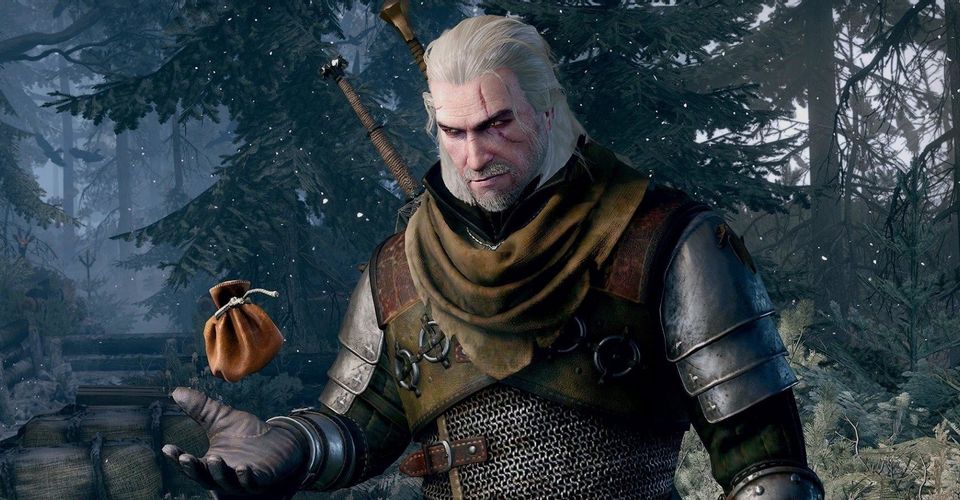The Witcher 3 Doesn’t Let Geralt Evade Taxes

Canonically, the life of a witcher is nomadic and nearly impoverished. Geralt travels the Continent accepting dangerous contracts that typically pay a paltry sum, all while tangling with the machinations of destiny on the side. Game mechanics in The Witcher 3: The Wild Hunt can lead to a contradictory picture of the normally coin-poor witcher known as the White Wolf, however. Through the abundance of quests in The Witcher 3, players are able to become exorbitantly rich, but not even in this fantasy realm are players able to escape the inevitability of taxation.
Accumulating 35,000 crowns puts Geralt on the tax collector’s radar, but only players with the Hearts of Stone expansion need to worry about the bank tracking them down. Once players have surpassed the crowns threshold, Geralt will be confronted in the Oxenfurt markets and questioned about his income. If Geralt defends himself as an upstanding citizen of legitimate witchering means, he is acknowledged as a taxpayer of good standing. If player opt to disclose potential other sources of income, Geralt is forced to pay his taxes.
The debt collector works for the Vivaldi Bank in The Witcher 3‘s city of Novigrad. Having an excess of 35,000 crowns and admitting to improperly paying taxes leaves Geralt with an outstanding balance of 1,000 crowns in back taxes. Although receiving the tax collector’s summons to Novigrad may cost players 1,000 crowns, it at least awards more XP than evading the payment (but only a paltry 100 extra).
The Witcher 3’s Tax Quest References Common Exploits

When Geralt is confronted about his income in Oxenfurt, the line of questioning is oddly specific to how Geralt could have become so rich. Each of the tax collector’s questions references a commonly used exploit The Witcher 3 players discovered after the game’s release . The first asks if Geralt ever took part in the wholesale trade of rawhide in White Orchard, The Witcher 3‘s first area. In White Orchard, players are able to quickly accrue wealth by killing the local livestock and selling the dropped items. The second question then asks if Geralt has ever bought bivalves in order to harvest their pearls – another get-rich-quick scheme discovered by players.
The final question takes aim at a common player tendency in many open-world RPGs: looting items from the homes of NPCs. If players admit to partaking in any two of the three activities, the tax collector will issue Geralt the summons to Vivaldi Bank. The Northern Kingdoms may be war-torn during the events of The Witcher 3, but that apparently doesn’t stop the cogs of capitalism. Vivaldi Bank is one of the most affluent banking institutions on the Continent, and the company won’t let even a single coin be tossed to a witcher without getting its due.
About The Author

















